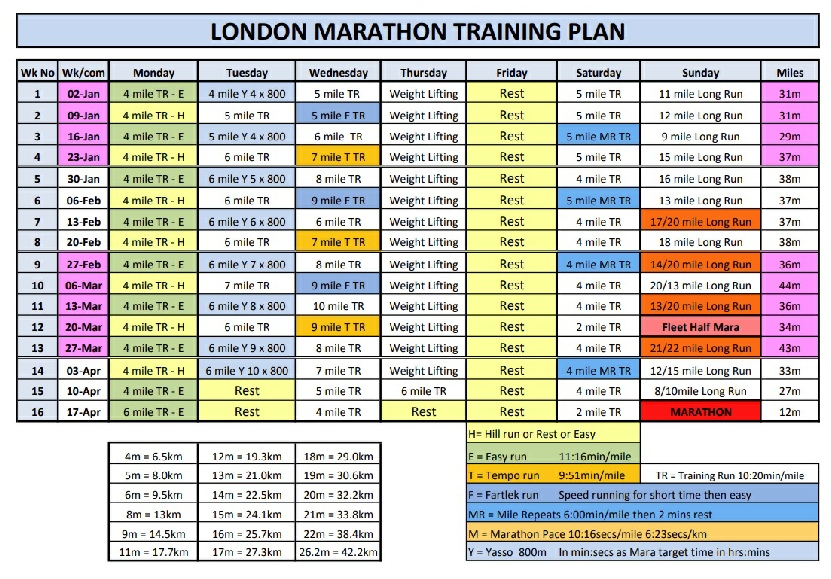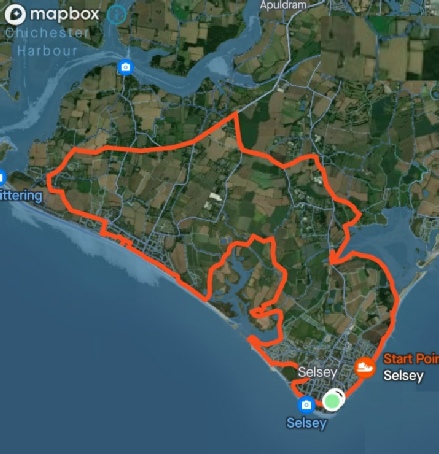Planning
As with most things, it is absolutely essential to plan everything. Not only will this be a vital preparation, it also helps reduce the inevitable "mara-noia". If you fail to plan, you plan to fail!
Remember the '7 P's' - Proper Planning and Preparation, Prevents Piss-Poor Performance!
That said, there are some things you just can't control Running the London Marathon.
Accommodation
Once you have your London Marathon entry confirmed, book your accommodation straight away. Prices for the marathon weekend are higher anyway and hotels can quickly get fully-booked for the marathon weekend. My modest Travelodge in Peckham which I booked in July 2022 cost £113 for the Saturday and Sunday night. As of 31 January 2023, the price had risen to £298! The Peckham was not due to be opened in time so I was transferred to the Woolwich Travelodge. Click link for my review!
Fundraising
My advice is to get your fundraising mostly out of the way before you start your training plan as it is just so time consuming! If you were lucky enough to have secured a place in the ballot, then this is less of an issue as there is no minimum target to hit.
Gear
You will need at least two pairs of running shoes. Depending on your mileage and the durability of your chosen brand and model, you may need three pairs. Most manufacturers suggested running shoes are designed to last just 500 miles. I have managed over 1,500 miles from my ASICS Cumulus 23s. The first pair you run-in and then leave for the actual marathon. I usually run-in for just 250 miles. The other two pairs you use for training runs, alternating each day. The reason for this is to give the shoes time for the cushion to recover, meaning they will last longer and also to dry out. I've found over the last two years, running shoes are on sale up to 30-50% off list price online during December and January, mostly the version that is being replaced.
Buy a running watch!
OK most mobile phones have running apps such as Strava, but a watch is much easier to monitor and more useful for speed intervals and tempo run training. I bought a Garmin Foreunner 45 for £100. I have all my monitoring now set for miles not kilometres, as I think it is better to get used to miles, and pace at minutes per mile and miles per hour.
Running clothing.
 You will need winter training gear. Most marathons are in the spring so the 16-week training begins in the first week of January. There will be very cold days and a wind chill even colder. I invested in a windproof jacket, long sleeve wicking top, gloves, beany hat and tights along with my usual socks, shorts and running T shirt. You will probably need to train after dark, so you will also need running lights to see where you are going (avoid dog mess and pot holes etc) and so you can be seen some flashing LED arm band lights.
You will need winter training gear. Most marathons are in the spring so the 16-week training begins in the first week of January. There will be very cold days and a wind chill even colder. I invested in a windproof jacket, long sleeve wicking top, gloves, beany hat and tights along with my usual socks, shorts and running T shirt. You will probably need to train after dark, so you will also need running lights to see where you are going (avoid dog mess and pot holes etc) and so you can be seen some flashing LED arm band lights.
Fuel
Running longer distances will require you to take on fuel so you can keep going and more importantly avoid hitting the wall and injury. I like the new gels and stick with High 5 and SIS blackcurrant. About one gel every 5 miles (45mins) gets me to the end of the longer runs. I don't use them for runs less than 13 miles. Again I got a good deal on these (half price) on Amazon just before Christmas.
Hydration
I always have a strong coffee before any morning run. I take 500ml of Buxton still mineral water with me on every run. I like it anyway and it is the water you get at the London Marathon. Unless you do local loops, you will need to think about water planning, either buying some at a shop, or filling up at a drinking water tap or someone's house on longer runs. I bought a camelback (after the marathon!) which has a 1.5L capacity and plenty of storage for gels, phone and everything else you may need for a longer run.
You got to have a dream, If you don't have a dream,
How you gonna have a dream come true?
Training plan
It is an absolute must to have a 16-week training plan. What it is will depend on your current running ability, experience, level of fitness and the finish time you are targeting. Many first-time marathon runners will have a target of just being able to finish, however having a target time, gives you added motivation both during training and during the marathon. My training plan is below, based on a 4-hour marathon finishing time with longer long runs in earlier weeks, as I am used to running 10 miles several times a week.

It is impossible to religiously follow any training plan, as the weather and perhaps injuries will mean changes.
I tried to choose the better weather days for my longest runs and re arrange other runs and rest days around long run days. I did however, exceed my planned weekly mileage, which gave me confidence for the actual marathon. I also listed my stats:- average pace, speed, cadence, heart rate and duration, so I could see improvements over the weeks and months, another great confidence booster.

I would warn anyone running a major marathon, London, Manchester, Chester, Brighton etc. that no matter what training you do, nothing will prepare you for running with up to 45,000 other runners (as London) with noisy crowds shouting encouragement. It is essential, if you have not run an organised event that you do so before the marathon itself. I ran the Thorney Island half-marathon in May 2022, my first event. I was recommended the Fleet Half Marathon on 26 March 2023, which gives a good experience running an all-road event, with 2,000 other runners and with spectators, a month before the London Marathon.
Return to Top










 You will need winter training gear. Most marathons are in the spring so the 16-
You will need winter training gear. Most marathons are in the spring so the 16-
